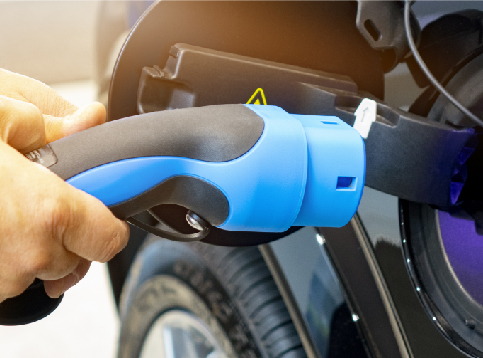Related News
Related News
-
EWEB customers achieve remarkable results in environmental stewardship through EWEB's Lead Green programs
Subscribers of EWEB's Lead Green programs helped reduce carbon emissions in 2023 by 730 metric tons of CO2e.
Find Out More -
EWEB prepares to re-energize the new Currin Substation
The rebuilt substation will increase load capacity, improve power reliability, and incorporate seismic resiliency to ensure service to our community for generations.
Find Out More -
EWEB, SUB and RWD join forces at Lane County Fair to distribute water to fairgoers
The Eugene Water & Electric Board, Springfield Utility Board and Rainbow Water District are teaming up for the 9th year to provide fairgoers with clean, cold free water.
Find Out More -
EWEB explores rate increases to cover rising costs and to modernize infrastructure
Amid rising inflation and other challenges, rate increases are necessary to maintain reliable utility services and fund critical investments in Eugene’s water and electric infrastructure.
Find Out More -
EWEB preparing for expected surge in electric vehicles
Electric vehicle (EV) sales are poised to skyrocket in the years ahead as technology improves, more models hit the market, prices fall and regulations limit the sale of gas-powered vehicles. And EWEB is preparing for this surge.
Find Out More -
Community members can test out climate-friendly e-bikes at E-Bike Expo on Saturday
EWEB encourages Eugene residents to ride into summer on clean, accessible e-bikes, with a $300 e-bike rebate.
Find Out More -
Tips to stay cool while saving money this summer
June is quickly approaching, and that means summer weather is just around the corner. Before you turn up the air conditioning and see an increase in your utility bill, try these tips to prepare your home for warmer weather to keep your home cool.
Find Out More -
EWEB offering additional energy efficiency supplement to qualified customers
Current EWEB residential electric customers may qualify to double their energy efficiency rebates with a limited time supplement.
Find Out More -
EWEB opens application for 2024 Electric Mobility Community Grants
Grant awards of up to $30,000 to cover costs associated with electric mobility projects.
Find Out More -
Upgrades to Eugene's downtown electric network continue
You may have noticed construction this week on the corner of 7th and Pearl Street. That’s because crews replaced a corroded, aging vault with an innovative, new Voltek vault. The Voltek design allows for the new infrastructure to be built inside of the existing aging vault. We’re able to install the new vault while the cables are still energized, minimizing disruption to customers and traffic while cutting construction time in half.
Find Out More -
New tanks come online as EWEB modernizes water system
New drinking water storage tanks are one of several investments to ensure that EWEB can meet critical community needs in the event of an earthquake.
Find Out More -
Celebrate Earth Month by taking charge of your home's energy use
This Earth Month, learn how you can reduce your energy usage to help protect our planet and reduce carbon emissions.
Find Out More -
EWEB crews focusing on restoring electric service for Hayden Bridge Water Filtration Plant
With more ice forecasted for Tuesday, all EWEB crews are in the field assessing outages and restoring power.
Find Out More -
Start the New Year saving money with energy saving tips
We know that saving money is important to our customers. Using energy and water wisely is a great way to reduce your monthly utility bill, even as the costs of electricity and water rise. EWEB has several steps you can take to reduce your usage and even make your home feel more comfortable.
Find Out More -
Currin Substation: End of year update
EWEB Engineer Philip Peterson explains what's been happening in the final stretch to complete the substation rebuild.
Find Out More - Show More
Is Level 1 Charging Fast Enough for You?
November 07, 2019

Most electric vehicles owners will charge their cars at home using a Level 1 or Level 2 charger.
Level 1 home charging is super easy and the least expensive way to fuel an electric vehicle. It uses a standard, three-prong 120-volt outlet and typically won't require modifications to your electrical panel or home wiring. All electric vehicles come with a 110-volt-compatible, Level 1 home connector kit.
Based on the vehicle's battery type, Level 1 charging can take 8 to 20 hours for a full charge.
Is that fast enough for you? The answer mostly depends on the distance you drive.
If you typically drive no more than 30-40 miles per day, Level 1 may be sufficient. That's because you can charge while you sleep. You simply plug-in (or program your car) to start charging at bedtime, and by the time you rise and shine, your battery is fully re-charged.
It all happens while you sleep, so it doesn't matter if takes 8 minutes or 8 hours.
If you typically drive more than 40 miles per day, you may want to consider a Level 2 charger, which uses a 240-volt rated charging unit and will likely require changes to your electrical panel and adding a new circuit, if one is not available. Based on the battery type and circuit capacity, Level 2 charging can take 3 to 8 hours to reach a full charge.
EWEB offers a $500 rebate for Level 2 home chargers and $1,000 for Level 2 charging stations at business.

